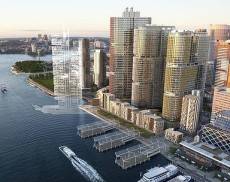November 21, 2014
Worktech weaves together the strands of people, place and technology
 Day two of Worktech London and affirmation that far from dying, as so many headline writers would have us believe, the office is merely entering a new phase. The underlying theme of Worktech continues to be how we find new ways of weaving together the strands of presence and connectedness formed by cities, buildings and technology. Worktech is a constant reminder that while our world may be shaped by algorithms, we still need each other and need to be with other people at least some of the time. The event is admirably hosted by long time collaborator and MC Jeremy Myerson whose knowledge and donnish charm holds things together while the real Don, founder Philip Ross, beams from the sidelines. It is now de rigeur for such events to have a poet in residence and this year’s was Matt Harvey who summed things up at the end of the day with reference to Worktech’s longstanding idea of jellybean working but who popped up in between sessions with lyrical summations including one that showed some real spunk (you had to be there).
Day two of Worktech London and affirmation that far from dying, as so many headline writers would have us believe, the office is merely entering a new phase. The underlying theme of Worktech continues to be how we find new ways of weaving together the strands of presence and connectedness formed by cities, buildings and technology. Worktech is a constant reminder that while our world may be shaped by algorithms, we still need each other and need to be with other people at least some of the time. The event is admirably hosted by long time collaborator and MC Jeremy Myerson whose knowledge and donnish charm holds things together while the real Don, founder Philip Ross, beams from the sidelines. It is now de rigeur for such events to have a poet in residence and this year’s was Matt Harvey who summed things up at the end of the day with reference to Worktech’s longstanding idea of jellybean working but who popped up in between sessions with lyrical summations including one that showed some real spunk (you had to be there).

























September 25, 2014
Why a more flexible approach to where and when we work is long overdue
by Sara Bean • Comment, Facilities management, Flexible working, News